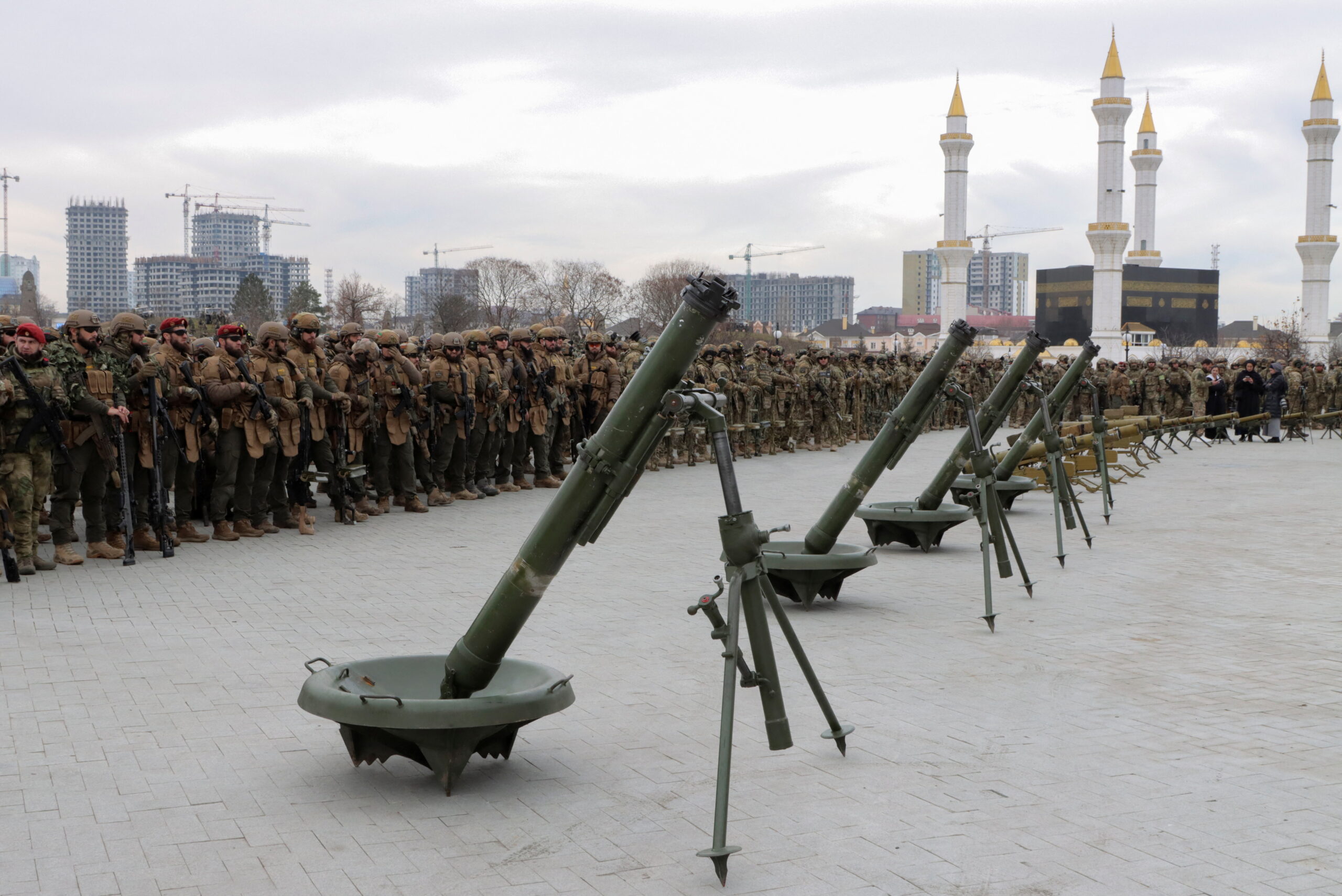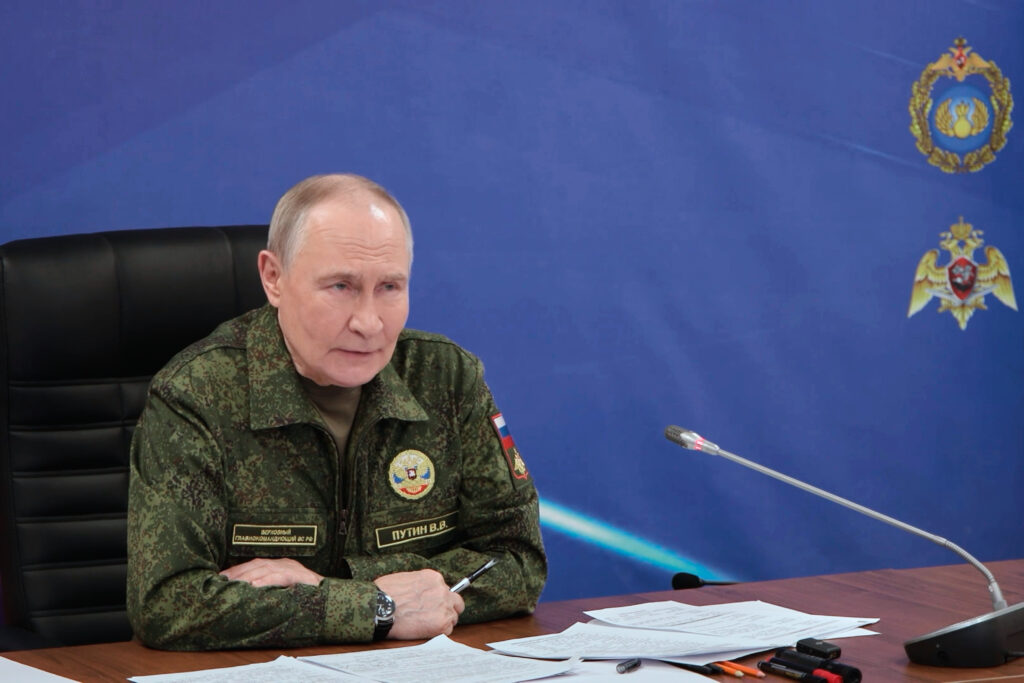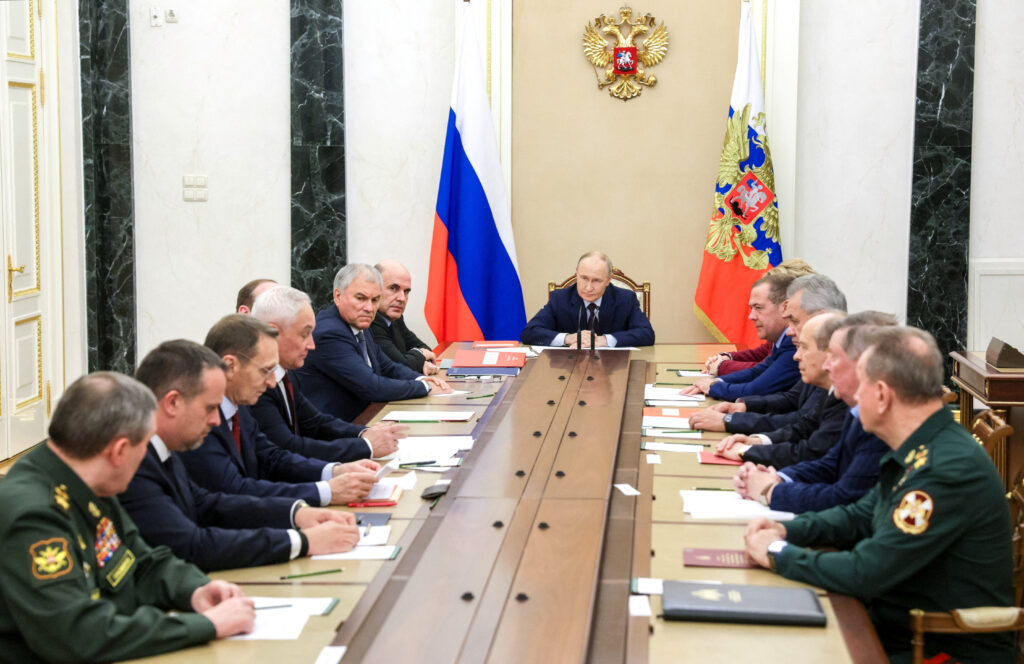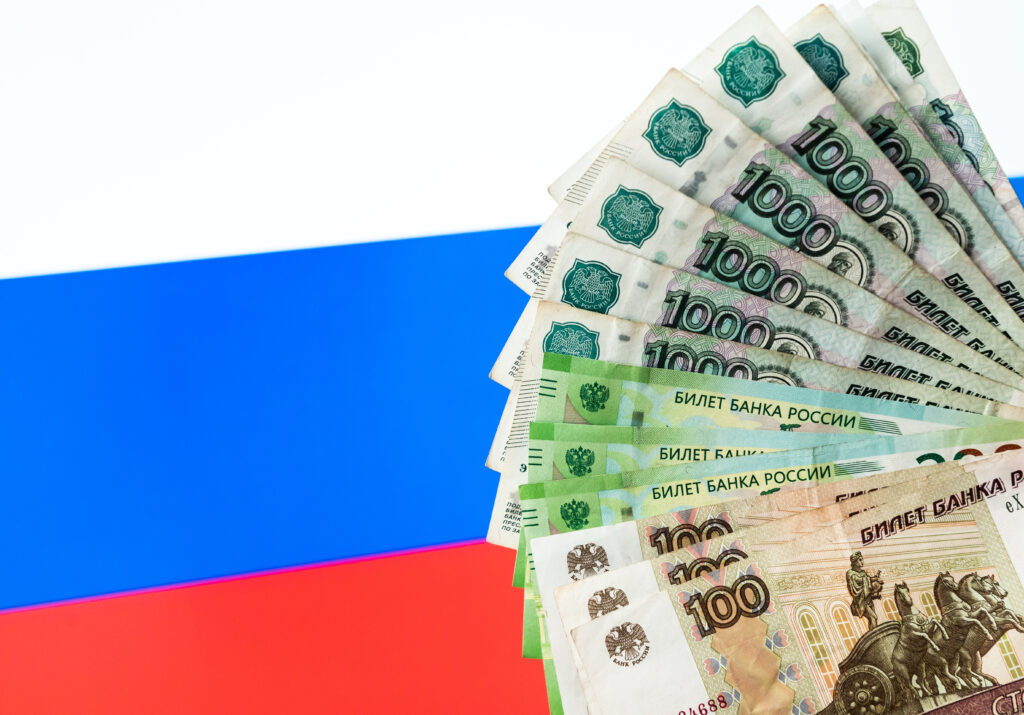While ongoing for years, personnel changes in Kadyrov’s regime have recently been both abundant and high-profile. Despite this, they do not alter who is a stakeholder in the regime, nor do they substantially change how they are stakeholders.
The regime’s structure lends itself to a typology divided between the primary «Big Three» (excluding the Kadyrov family, which is blatantly dominant in the beneficial hierarchy), the irregular next tier, and the outliers. These stakeholders are crucial to understanding the ongoing personnel transitions that are part of the successor challenge, no matter how long the competition actually lasts.
Big Three
The «Big Three» families besides the Kadyrovs are the Delimkhanovs, the Daudovs, and the Vismuradovs. This assessment is based off their extensive ties to Kadyrov and repeatedly demonstrated proximity to the republic’s warlord. Few would deny the status of these three families—headed by Adam Delimkhanov, Magomed Daudov, and Abuzaid Vismuradov—although the latter retreated from public standing prior to Russia’s 2022 invasion of Ukraine.
The Delimkhanovs, as a family, have predominantly involved themselves with, and lead, the security services. Adam, as an MP in the Duma, has served as Kadyrov’s man in Moscow, further participating extensively in the governor’s financial schemes and assassinations abroad. More recently, he accepted a greater role in Ukraine, starting with the assault on Mariupol. He has also served as a point-man on counterterrorism discussions with partner countries. Adam’s younger brother, colonel-general Alibek, is the first deputy commander of Rosgvardia in the North Caucasus, while his next youngest brother, Sharip, a major-general in the Ministry of Internal Affairs (MVD), commands Chechnya’s regional branch of Rosgvardia. Both brothers served as military commanders during the initial attempt to capture Kyiv. Finally, little is known about the fourth brother, Akhmad (Surkho), beyond the fact that he exists and serves in the MVD. Even more distant relatives, namely the Geremeevs, have served formally in the kadyrovtsy and in Adam’s assassination schemes.
The Daudovs serve in more myriad roles. Magomed Daudov, who recently moved from Speaker of Parliament to being Prime Minister, for the past decade has been responsible for the domestic situation in Chechnya. As part of these duties, he has organized mass abductions, torture and other human rights violations. Further, he has advocated for Kadyrov’s regional policies targeting the neighboring republics of Dagestan and Ingushetia. Magomed also is attributed the successful suppression of the insurgency and subsequent re-development of Chechnya. The next most important of the Daudov family is Magomed’s uncle, Turko, who was Kadyrov’s main advisor and representative in international affairs. Based at the governor’s villa in Dubai, he mostly liaised with the Gulf States, although he also met with Serbian President Aleksandar Vučić. In July 2023, Turko was appointed Russia’s representative to the Organization of Islamic States. Turko was crucial to Kadyrov’s diplomatic endeavors, which were conducted on the Kremlin’s behalf.
The Vismuradov family, which is considerably less extensive than others, has been dominated by Abuzaid. As one of Kadyrov’s oldest friends, he has become a major-general and commander of SOBR «Akhmat» (formerly SOBR «Terek»). In cooperation with Magomed Daudov, they are largely responsible for cultivating a pervasive threatening atmosphere in the republic. His ties to the «Akhmat» fight club have helped further the regime’s co-optation of the republic’s male population to sustain the ranks of the kadyrovtsy.
Second tier
The second tier of stakeholders is the collection of families with substantial influence in the regime, albeit outside of the Big Three. These are major players in the economy and security services.
The family with the largest economic stake is that of Movsadi Alviev, Chechnya’s main oligarch. His name has gained greater notoriety in recent years due to his financing of Russian Spetsnaz University (RSU), Kadyrov’s pet project in Gudermes. His business portfolio is large: «Groznyi-Siti,» the central development in the capital; «Oniks,» which has received nearly 30 billion rubles in garbage contracts; and a variety of other enterprises. His son, Khalid, has long been involved in the family business. He was the general director of «Arena Siti», the predecessor to «Groznyi-Siti,» and owned «Minutka» before its sale to the Kadyrov family. Additionally, Movsadi’s brother, Khozhbaudi, is the general director of Chechenneftekhimprom, which controls the republic’s petrochemical sector. The Alvievs have been given responsibility for managing some of the projects most important to Kadyrov, making them crucial to the regime’s finances.
Other families comprise sizable cadres within the kadyrovtsy and other governmental departments. Perhaps the best known are the Chalaevs, due to Zamid’s command of the notorious Akhmat Kadyrov Police Regiment, known for human rights violations and as the international face of the kadyrovtsy’s capabilities Zamid’s brothers, Iskhak and Murad, are commanders at the district level within Chechnya. The Taimaskhanovs have held various senior positions in the government administration and ministries. The Aguev brothers have mostly passed along leadership of the Kurchaloi MVD department, which is sanctioned for gross human rights violations. Rustam Aguev, the current commander, has fought in Ukraine and patrolled Belgorod. His brother Ismail now leads the Ministry of Defense’s «Akhmat-Zapad» battalion. These, other families play prominent roles in the Kadyrov regime.
Outliers
Several key stakeholders do not fit neatly into the above categories, although some of them do share characteristics that allow them to be loosely grouped.
One group of actors are atypical and do not conventionally fit within the regime structure. The most obvious example is Daniil Martynov, who has transitioned from a member of the FSB’s Alpha Group, to being Kadyrov’s security advisor, to a Kyiv front commander, and now to serving as an advisor to the Russian Minister of Emergency Situations. Another example is Apti Alaudinov. Having previously fallen from Kadyrov’s graces, he has dramatically surpassed his prior status. After taking charge of the «Akhmat Group» when it was first formed—seemingly for the purpose of humiliating his commanders who failed on the Kyiv assault—Alaudinov was recently appointed Deputy Chief of the Russian Armed Forces’ Main Military-Political Directorate. This increases Kadyrov’s reach into the Ministry of Defense amidst a purge. Finally, Ramzan’s nephew, Khamzat Kadyrov, who officially serves as an advisor on the security block. However, he has held few positions of value, instead being active on the informal side of the regime, essentially serving as an enforcer. Martynov and Alaudinov may have left the regime’s direct structure, but they are certainly still serving its interests. In contrast, Khamzat Kadyrov is within the formal regime structure, but is mostly active beyond formal duties.
Second, Kadyrov is known to have utilized a couple middlemen for business and financial matters. These are non-Chechens who are sometimes known friends of the regime, although sometimes bear no obvious connection to it. Pavel Krotov has served as an intermediary for Kadyrov and Adam Delimkhanov in extorting Russian businessmen, as well as managing the construction of at least one of Kadyrov’s estates in Chechnya. Kenes Rakishev, a Kazakh oligarch, helped finance this construction and has also participated in business deals with Krotov. The use of such middlemen facilitates the regime’s acquisition and storage of wealth, while masking the means of accomplishing these tasks.
The final group are the «everyday» men—some of whom overlap with the second tier—who perform tasks that are more banal in nature, such as bureaucrats, propagandists, and religious legitimizers. Under the first label are officials such as former Prime Minister Muslim Khuchiev or acting Speaker of Parliament Shaid Zhamaldaev, both of whom are veteran politicians. The chief propagandists are regional state television director Chingiz Akhmadov and Akhmed Dudaev, the Minister for National Policy, External Relations, Press and Information. They play the crucial role of framing the regime’s messaging for its primary audience of one (i.e., Putin). Finally, Kadyrov’s main religious legitimizers are the republic’s Chief Mufti Salakh Mezhiev and Kadyrov’s advisor on religious affairs Adam Shakhidov. Frankly, they are less involved in the regime’s structure, instead providing religious justifications for Kadyrov’s actions and aiding his attempts to reshape Chechen culture to one that will create greater public support for the regime in the long run.
Stakeholders’ import and turnover
First, the significant stakeholders, particularly those in the financial or security spheres, possess the most potential to impact the plans for Kadyrov’s successor. If Moscow circumvented the system created by Kadyrov, it would undoubtedly anger and alienate regime members who maintain the status quo in Chechnya, such as the rank-and-file kadyrovtsy who benefit monetarily and in increased security. Unless the Kremlin plans on overturning the entire system, Moscow will have to engage with the existing stakeholders.
Second, interests and stakes are dynamic. Changes are inherent to trying to mask financial stakes and there is a natural turnover in security service leadership. Such dynamics are exacerbated by the coinciding of wartime pressures and the next generation’s coming of age. This last point is particularly salient, as it underscores that the changes will continue at an abnormally quick pace for the foreseeable future, as current officials’ children are integrated into the regime.










